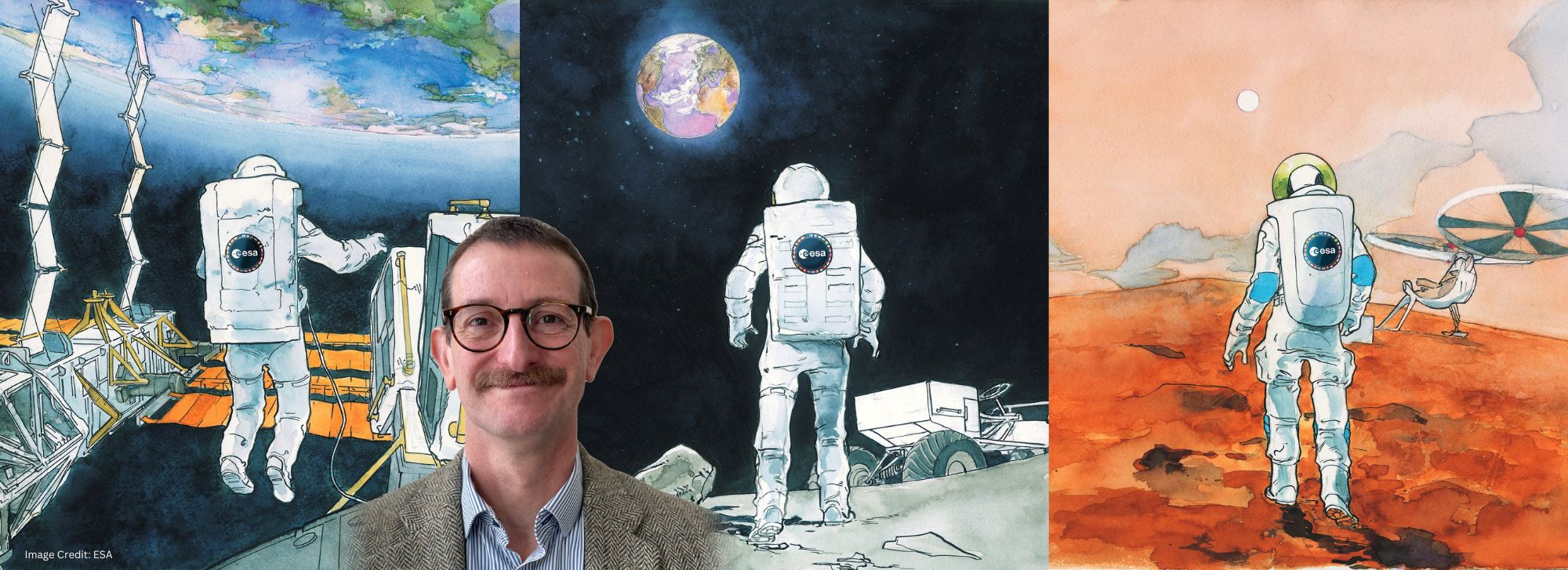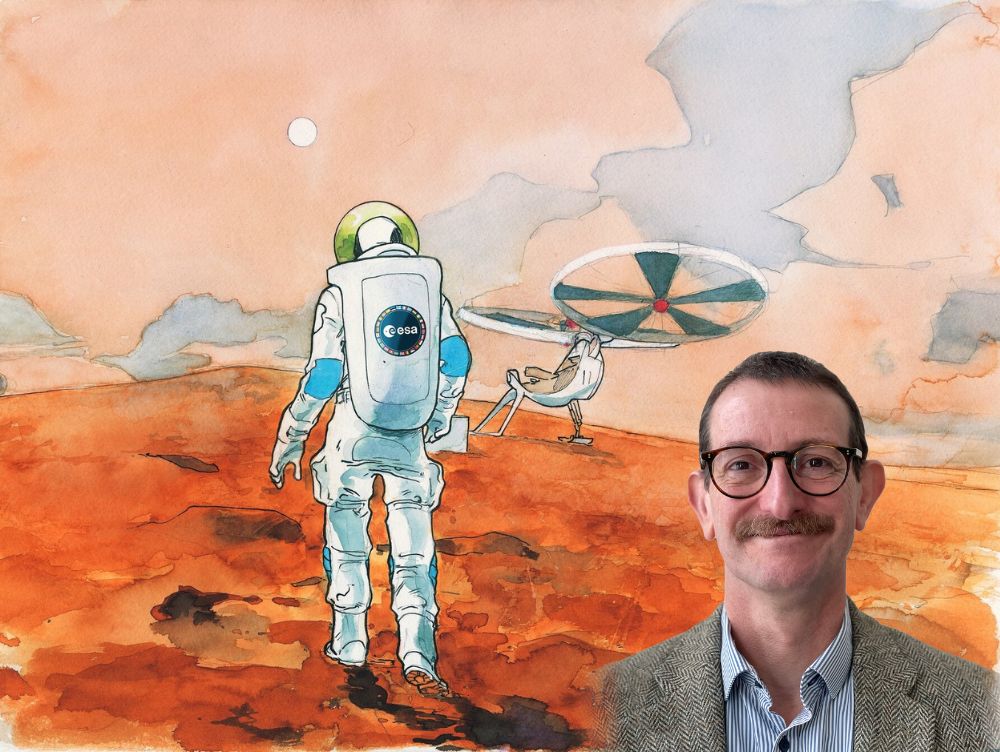

Lecture: ESA’s Vision for Mars Exploration
Speaker: Dr. Albert Haldemann
Mars Chief Engineer, Mars Exploration Group, ESA
Thursday, May 11, 2023
5:00 P.M. PDT Lecture
4:30 P.M. PDT Reception
Chen 100 Lecture Hall - Tianqiao and Chrissy Chen Neuroscience Research Building, California Institute of Technology
Abstract:
Europe’s Mars exploration programme has always had, and will have, the ambition to marry exploration with science. ESA’s first Mars mission was Mars Express launched in 2003, and still orbiting Mars today. ESA continued that start with the ExoMars program that has weathered ups and downs and changing international partners, but has persevered---the Trace Gas Orbiter launched in 2016 is probing the mysteries of Mars’ atmospheric composition, sometimes confounding the observations obtained at the surface by NASA’s Rovers, and the Rosalind Franklin Rover is now planned for a 2028 launch with NASA’s help, and will carry out still-relevant science at Mars in 2030 by drilling for the first time more than 1 meter below the surface. ESA is a full partner in the Mars Sample Return program which represents a key scientific ambition of the Mars research community.
ESA’s vision however is to send Europeans to Mars. Europe is renewing its ambitions for human exploration, and an objective of that is to participate to the first human mission to Mars. ESA is using its robots to scout the way. While doing so, ESA is committed to sustainable space exploration; an additional challenge to wrap into already ambitious exploration goals. European missions to Mars are part of ESA's Terrae Novae exploration programme, which includes missions to 3 destinations: low-Earth orbit, the Moon, and Mars. The missions that are developed to each destination are planned to address a wide spectrum of scientific questions and develop technologies that will further enable exploration at all 3 destinations. Thus, ESA missions to LEO and the Moon will help prepare for human exploration of the Red Planet, but the missions to Mars are also intended to learn lessons and develop technologies that will aid in the exploration of the Moon and enable human crews and science in LEO.
ESA is a treaty-based international organisation, and works hard to foster international cooperation, acting as a key international partner in Mars robotic exploration, for example on MSR. While partnerships remain a fundamental part of the roadmap to autonomy, ESA wants to lead Europe’s journey into the Solar System and to return the benefits of exploration back to society on Earth.
Speaker's Biography:
Albert Haldemann is Mars Chief Engineer in ESA’s Mars Exploration Group, supporting ESA’s partnership with NASA for both the ExoMars Rosalind Franklin Mission, and the Mars Sample Return Program.
Albert has international experience in space project and program implementation, management and operations from work on five of the ten spacecraft attempting to land on Mars since 1997. Albert obtained his Ph.D. in Planetary Science from Caltech in 1997, after a Diplôme de Physicien from the University of Neuchâtel in Switzerland, where he was also a jet pilot in the Swiss Air Force. He worked at the Jet Propulsion Laboratory from 1997 to 2007 in various roles, including as Senior Engineer in the Communication, Tracking and Radar Division, as Deputy Project Scientist of the Mars Exploration Rovers Spirit and Opportunity, and as Deputy Section Manager of the Planetary Science Section within JPL’s Science Division.
Albert joined ESA in 2007 as the Payload and AIV Manager for the ExoMars program. In that role, he has overseen the development, delivery, and system-level testing of four flight instruments to the Trace Gas Orbiter and one payload suite to the Schiaparelli lander for ExoMars 2016, as well for the nine flight instruments to the Rosalind Franklin Rover for ExoMars 2022. He supervised all ExoMars integration, testing, and verification for ExoMars 2016, and, in cooperation with Russian partners, for ExoMars 2022. During the ExoMars 2016 Launch Campaign in Baikonur he briefly served as ESA’s launch campaign manager.
Albert is a space exploration enthusiast, convinced that what humans learn from getting to Mars, and on Mars, is a mirror to examine our existence on Earth. He enjoys cycling, dog walking, and travel.

